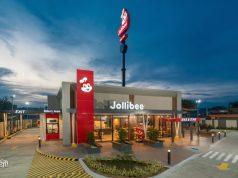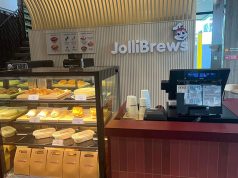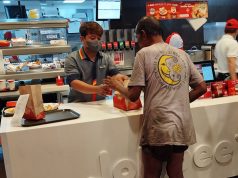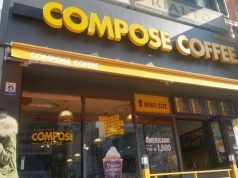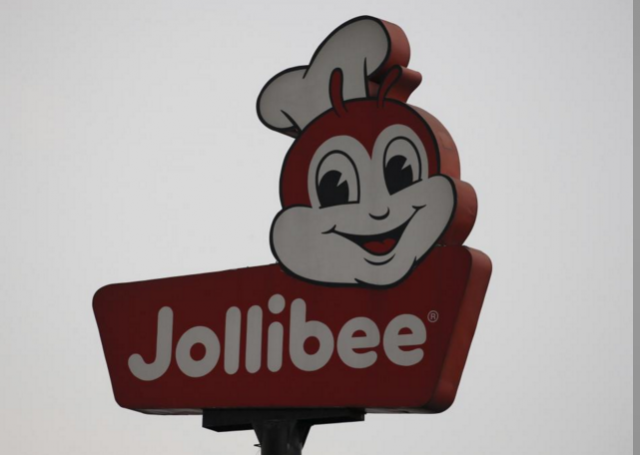
HONG KONG – Jollibee Foods Corp, popular in the Philippines for its sweet-style spaghetti and fried chicken, is exploring a bid for Britain’s Pret A Manger which could value the upscale sandwich chain at over $1 billion, sources familiar with the matter said.
The deal would make an unlikely pairing. Jollibee has a huge following in the Philippines, as well as with Filipinos overseas, for its burgers and other fast-food meals.
Pret, meanwhile, has built its reputation selling organic coffee and wholesome sandwiches to office workers in Britain and in cities like Hong Kong and New York.
Jollibee had been holding talks with an advisor over an offer for Pret, the sources said. They declined to be named as the talks were not public.
The sources said Jollibee’s offer could value Pret at over $1 billion, based on its 2016 core earnings of just over 93 million pounds.
A successful bid by Jollibee would mark the biggest overseas deals to date by the Flipino company, and potentially one of the biggest ever outbound deals from the Philippines.
Jollibee, with a market value of $5.2 billion, operates the largest food service network in the Philippines with 2,700 restaurant outlets, including its eponymous chain of fast food stores with the ubiquitous smiling bee logo.
But it has also been expanding across Southeast Asia and beyond, hoping to appeal to lucrative local consumers as well as Filipino expatriates with coffee, donut and noodle offerings.
Pret, a chain with more than 400 shops worldwide, has built its reputation selling gourmet baguettes and offerings like wild crayfish-and-rocket sandwiches to office workers, and has since embraced health options like dairy-free coconut porridge.
Citing sources, Reuters reported earlier this year that Pret’s private equity owner, Bridgepoint, was preparing for a New York listing later this year.
Pret reported 2016 revenues of 776 million pounds ($1.1 billion).
The potential offer for Pret would compare with higher market values for rivals such as Shake Shack and Chipotle. The trading multiples for the U.S. listed rivals would imply a price more than twice what Jollibee is considering, analysts said.
Still, the company’s interest in Pret is still at an early stage and it has not yet finalized a valuation or had direct discussions with Pret, one of the sources said.
Jollibee declined to comment on Pret but said acquisition of new businesses was part of its growth strategy.
“Very few selected companies reach completion of acquisition, while the vast majority of potential targets does not,” Chief Financial Officer Ysmael V. Baysa told Reuters in an emailed response. Baysa said Jollibee had not submitted a formal or informal bid for any company in recent months.
Bridgepoint and Pret declined to comment when reached by Reuters.
SEEKING GLOBAL GROWTH
Jollibee’s most recent expansion move was the acquisition in 2015 of a 40 percent stake in Smashburger, a US-based chain, for roughly $100 million, a deal that already marked a shift towards higher end ready-to-grab meals.
The unsolicited offer for Pret, however, would also have to compete with the likely valuation from the potential listing.
Jollibee, which outsells McDonalds and KFC restaurants in the Philippines, has been seeking a push into global markets to boost sales and profits. Jollibee reported record revenue and profit last year, but has consistently sought longer term growth overseas.
Jollibee’s foreign businesses – including joint ventures in China, the United States and Vietnam – account for 30 percent of its system-wide global sales. That is a measure of all sales to consumers both from company-owned and franchised stores.
Pret would mark a more dramatic step, however, given its network of more than 400 shops globally, with the majority based in the United Kingdom.
Bridgepoint bought the Pret chain at the height of the buyout boom in 2008 for 500 million euros ($539 million).





